Palestine welcomes Belgium’s decision to label products of Israeli settlements
The Palestinian Ministry of Foreign Affairs and Expatriates has welcomed a recent Belgian decision to label products made in illegal Israeli settlements in the occupied territories.
In a statement on Thursday, the ministry said Belgium's decision was based on the fact that the Israeli settlements are contrary to international laws and UN resolutions, which call on world states to distinguish in their dealings between Israeli communities and Palestinian lands occupied by Israel.
"This decision implements European Union guidelines on the issue as well as honors obligations emanating from United Nations Security Council resolutions, including resolution 2334. It is a positive first step that is also consistent with obligations under international law to reject and not recognize Israel's illegal settlement regime," the statement read.
It said all Israeli settlements in the occupied territory, including East al-Quds, violate the international humanitarian law and constitute a war crime.
"As affirmed by United Nations resolutions and in line with positions adopted by European Union members, including Belgium, they are also the antithesis to peace and derail any sincere efforts to end the occupation."
The ministry appealed to the international community to hold Israel accountable and reject its de facto annexation of the occupied West Bank through settlement expansion, home demolitions, and mass displacement of Palestinians.
Belgium on Wednesday announced that it plans to label products made in the occupied Palestinian lands, citing Brussels’ desire "to ensure human rights in the West Bank.”
The European Union in 2015 provided all member countries with guidelines to start labeling products from Israeli settlements, stating that they could not be dubbed "Made in Israel."
The EU guidelines stated that labels on settlement products sold in EU countries should clearly state that they come from Israeli settlements.
The Belgian government also said that any future agreement with Israel must include a special clause stating that the deal is not valid in the West Bank and East al-Quds.
It said it would investigate the possibility of boycotting products from the occupied West Bank altogether.
The Palestinian statement called on world countries to follow Belgium by labeling settlement products and act on putting pressure to halt growing settler assaults on the Palestinians.
"It is neither controversial nor revolutionary and must be the standard policy in all markets. Products produced in illegal Israeli settlements on stolen Palestinian land are no different from repackaged loot that must neither afforded legitimacy nor be sold as legitimately produced goods."
The EU has repeatedly condemned the Israeli policy of settlement expansion, but has refrained from any practical measures to stop it.
On Tuesday, an EU delegation to the West Bank and the Gaza Strip voiced strong opposition to Israel's settlement expansion policy.
EU diplomats said the union will not recognize any changes to the pre-1967 borders, including with regard to al-Quds, other than those agreed by both sides.
More than 600,000 Israelis live in over 230 settlements built since the 1967 occupation of the Palestinian territories of the West Bank, including East al-Quds. All settlements are illegal under international law. The United Nations Security Council has condemned the settlement activities in several resolutions.
Palestinians want the West Bank as part of a future independent Palestinian state, with East al-Quds as its capital. The last round of Israeli-Palestinian talks collapsed in 2014. Among the major sticking points in those negotiations was Israel’s continued settlement expansion.

HRF seeks ICC arrest warrant for Israel’s foreign minister

Trump’s stance on Palestine ‘extremely dangerous’: Hezbollah chief

Israeli court sentences Palestinian child to 18 years in prison
US bombers fly over Mediterranean Sea as delivery of heavy bombs to Israel announced
Pro-Israel extremist mistakes Israeli tourists for ‘Palestinians’, opens fire on them in Miami
Starmer says UK 'ready' to send troops to Ukraine amid shock over US policy shift on war
Leader: Enemy's soft war failed to dampen nation’s resolve, sow discord and doubt
Iran, Iraq urge efforts to boost all-out relations, foil US-Israel plots
Silent genocide: Gaza hospitals facing 'severe lack of oxygen' after Israeli attacks
Hamas, Islamic Jihad condemn Israel raid on Palestinian detainees in Ofer Prison
US delivers heavy bombs to Israel as Trump lifts ban on transfer




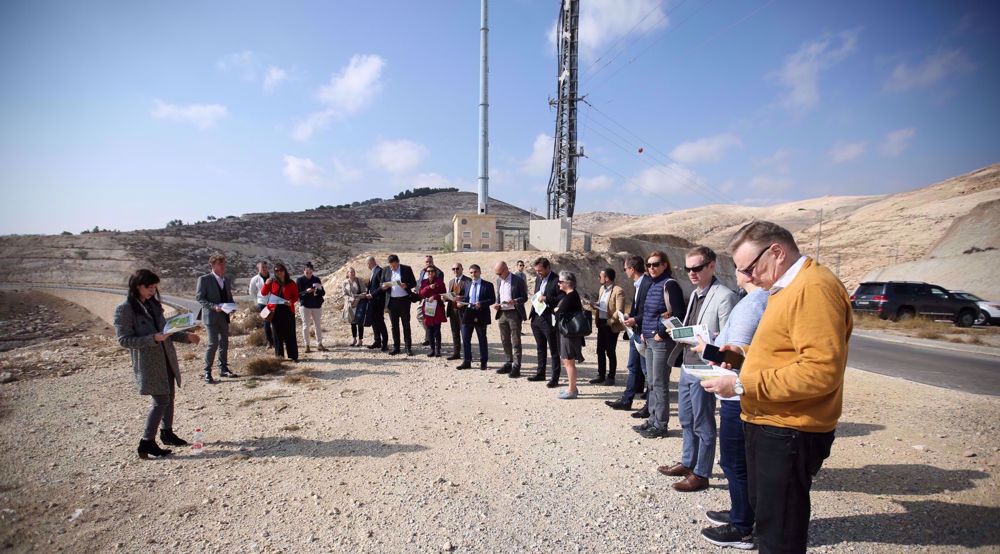



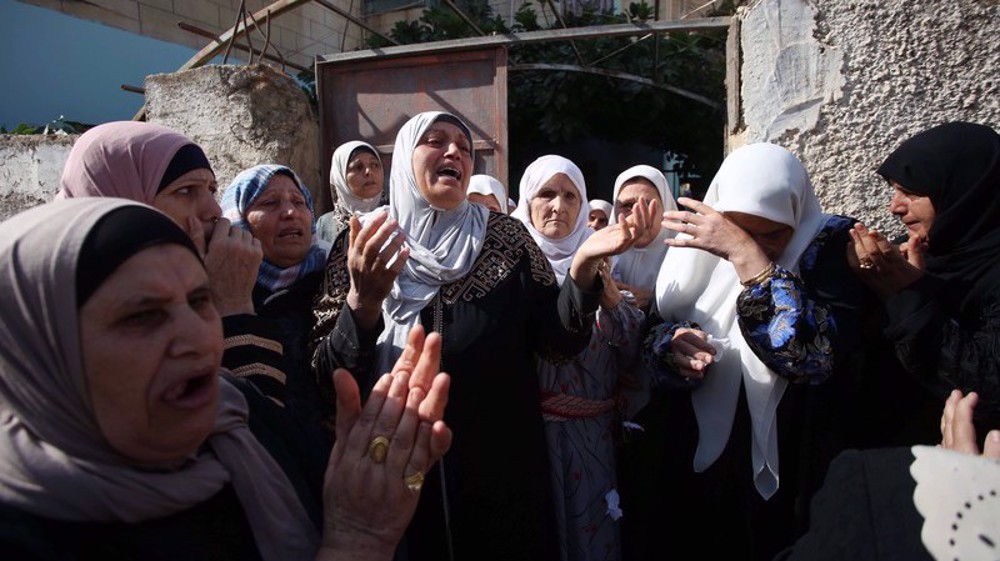
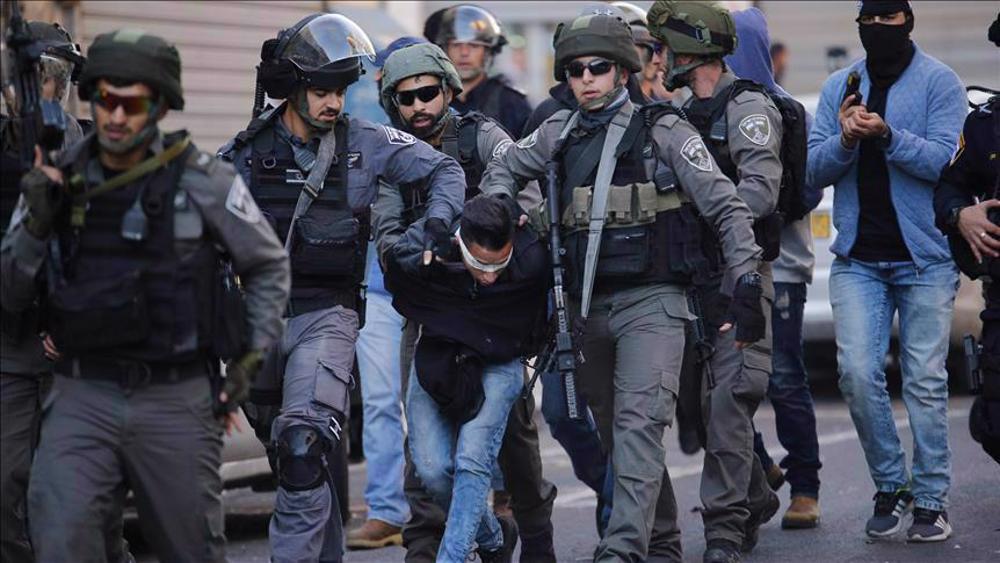
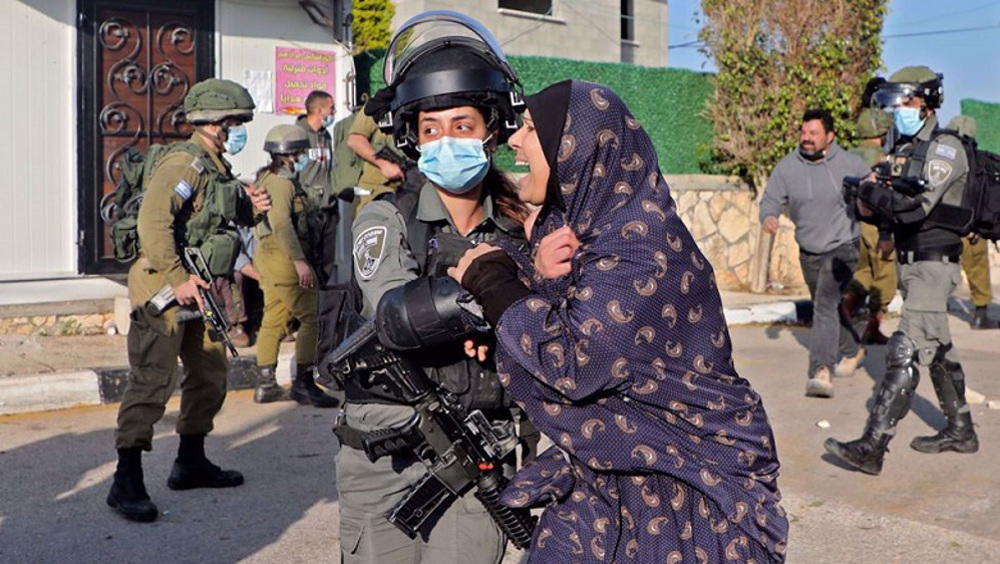
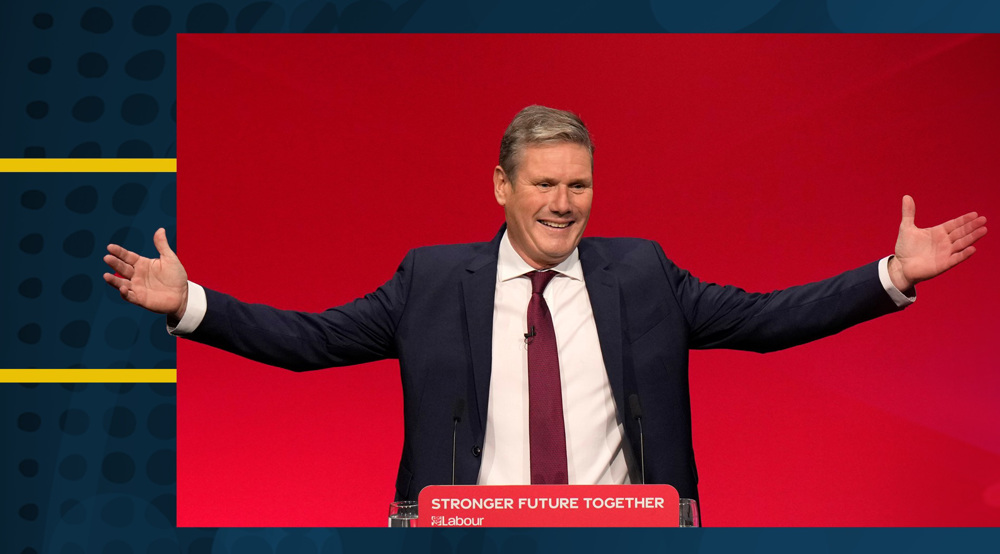
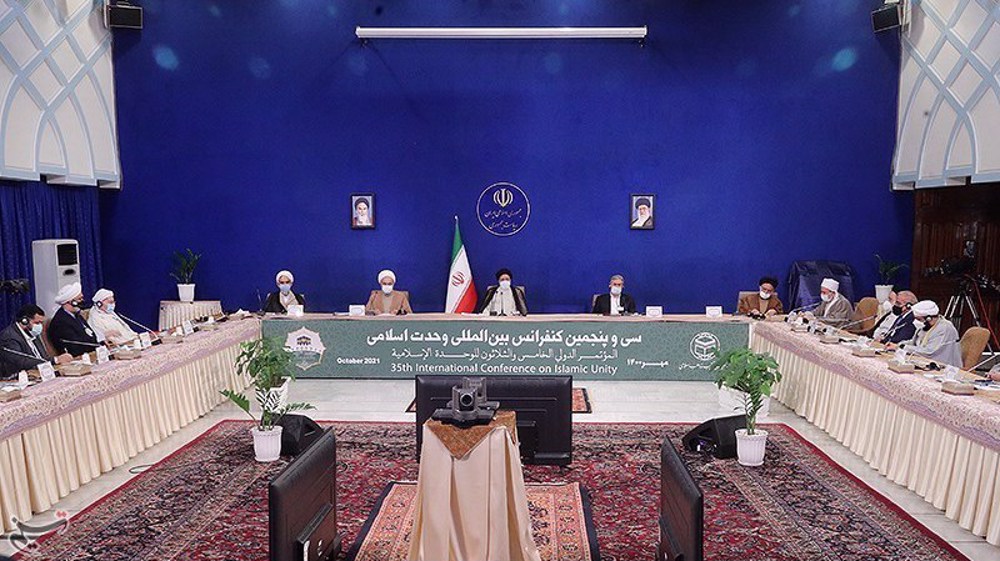
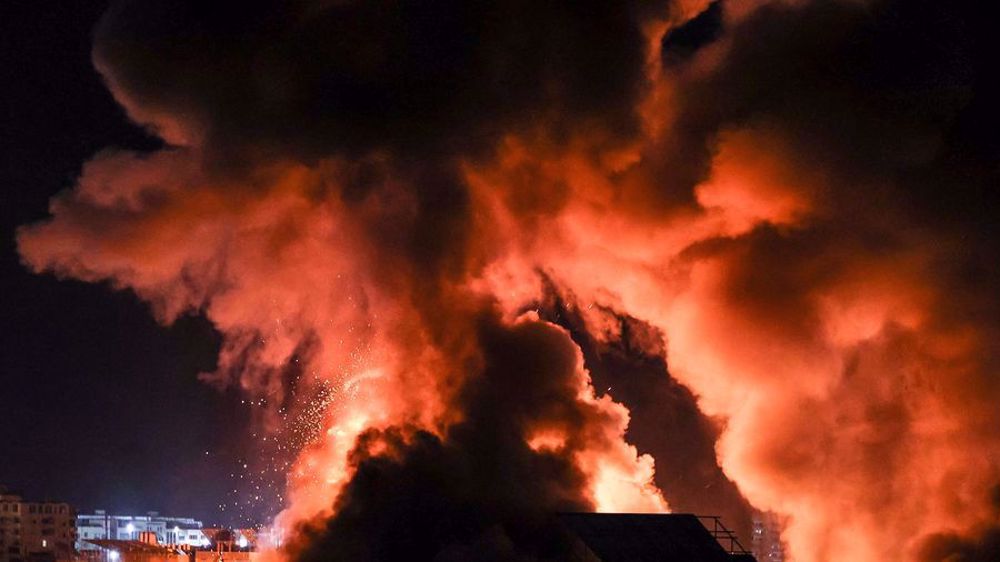
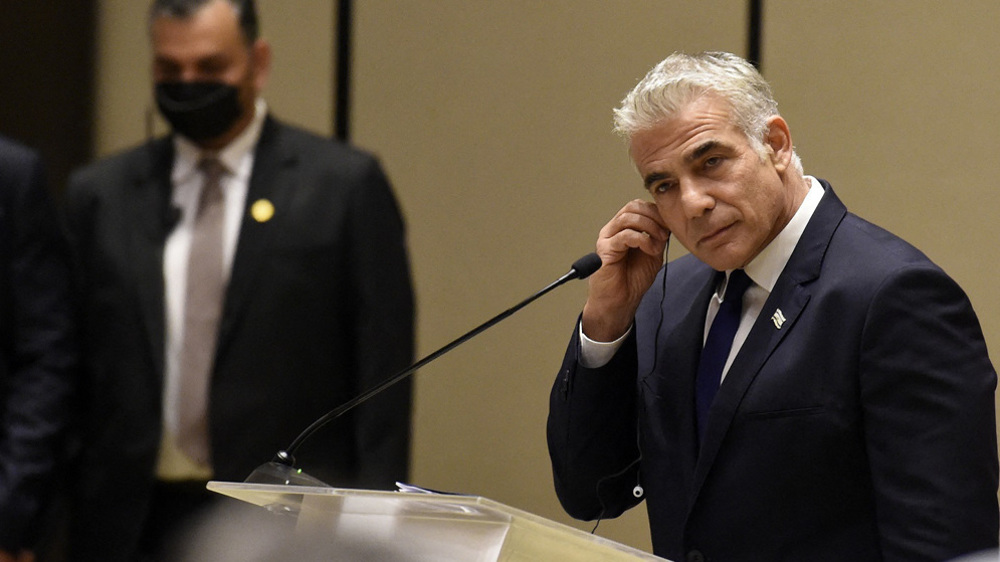
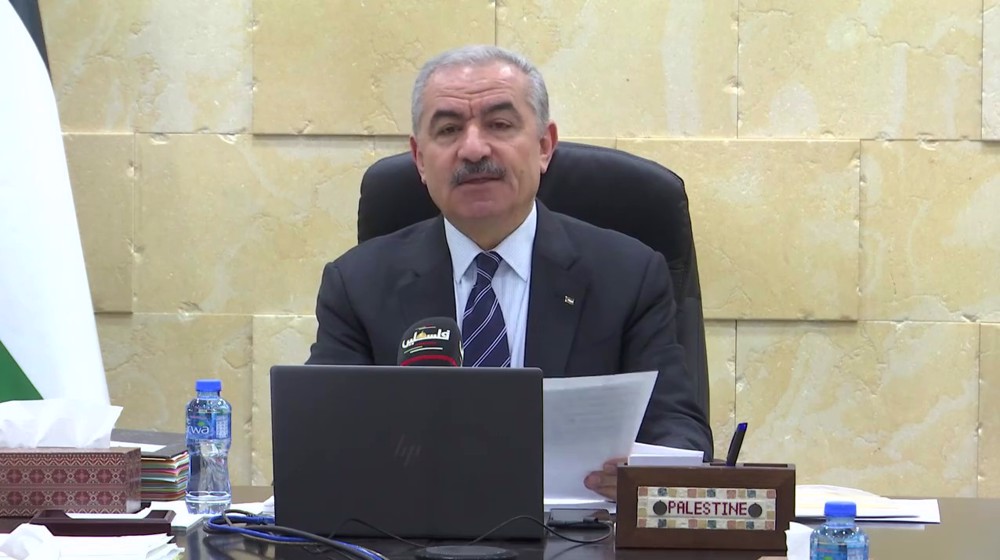
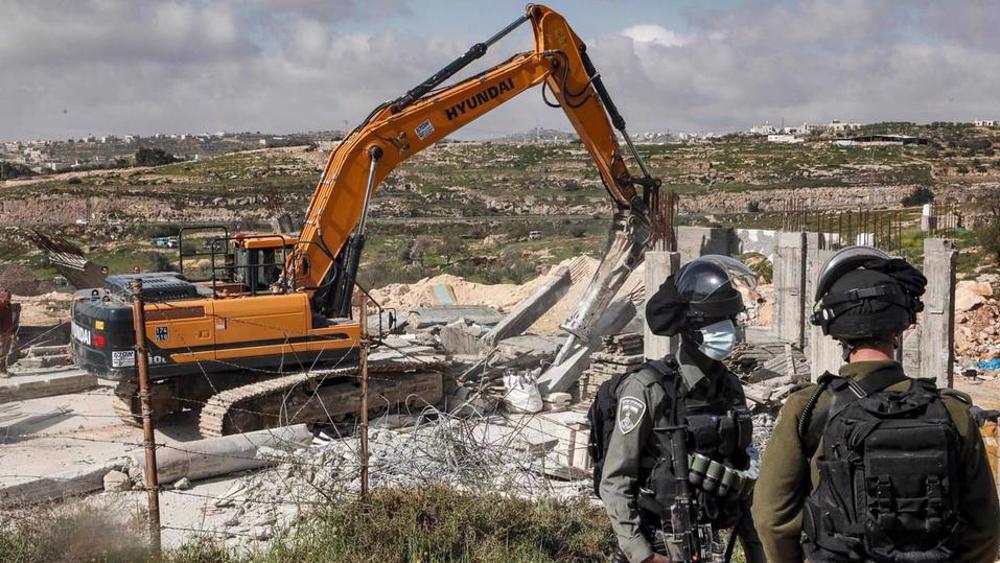
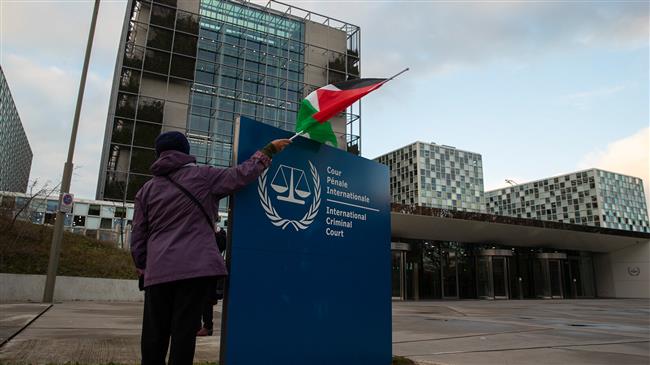

 This makes it easy to access the Press TV website
This makes it easy to access the Press TV website